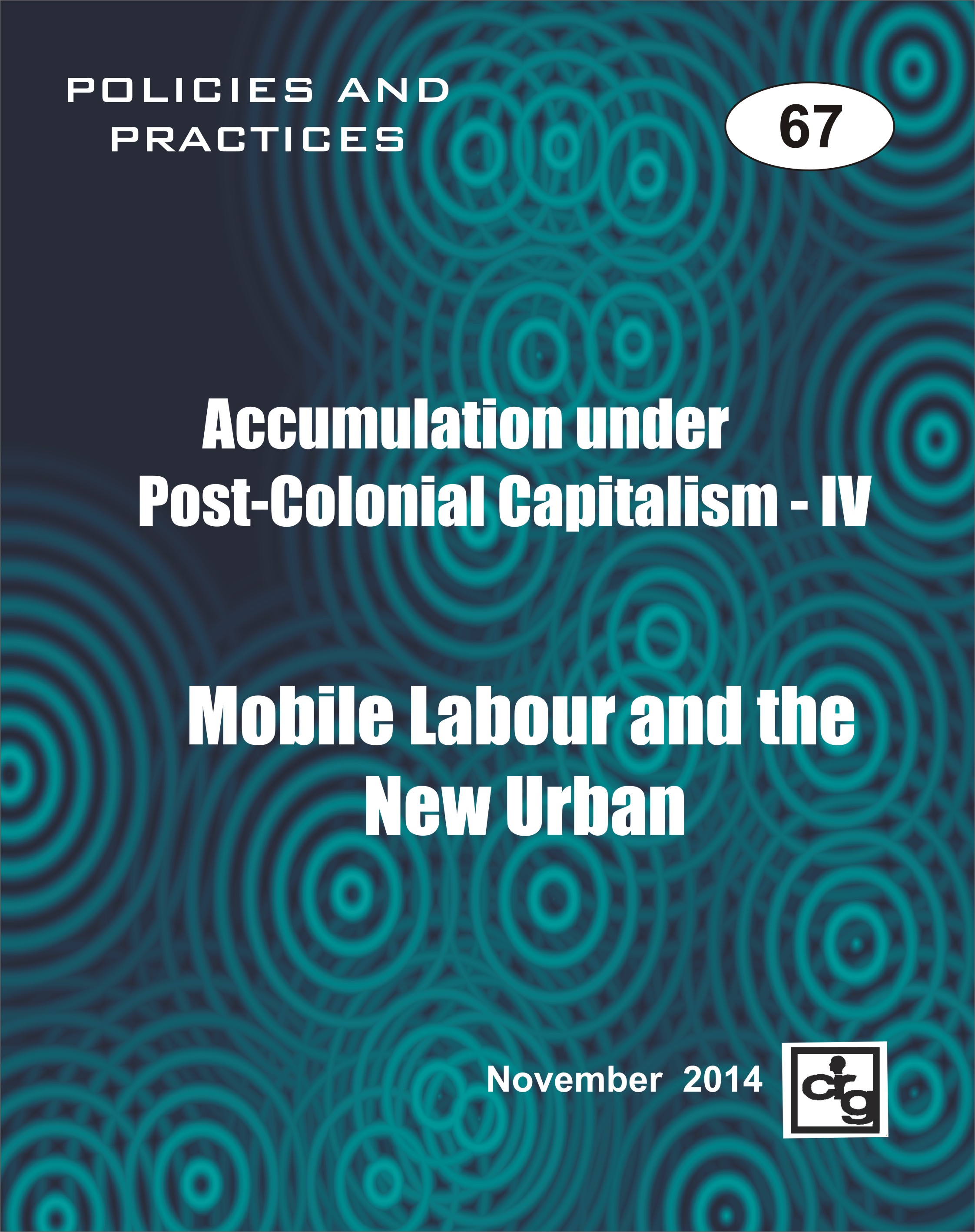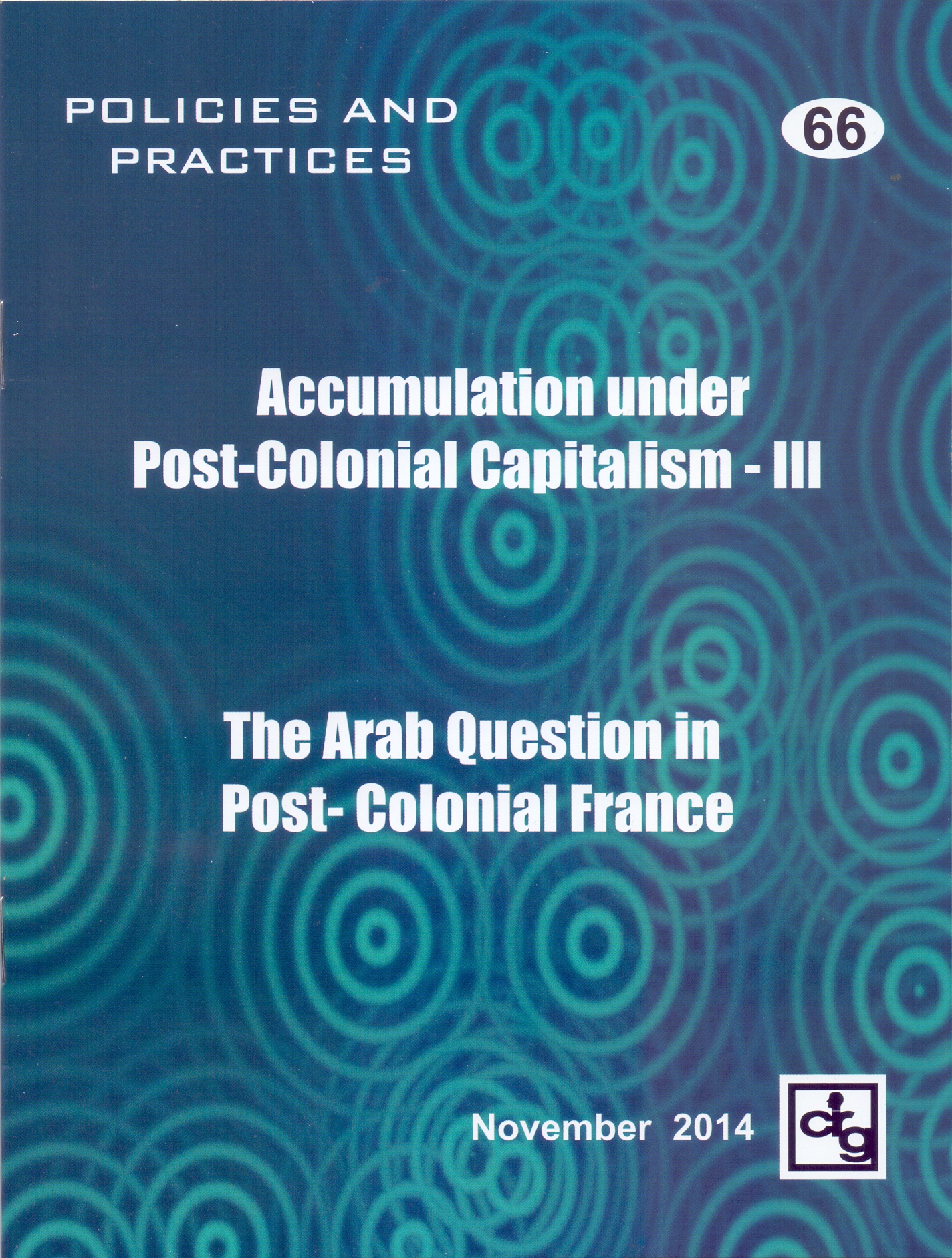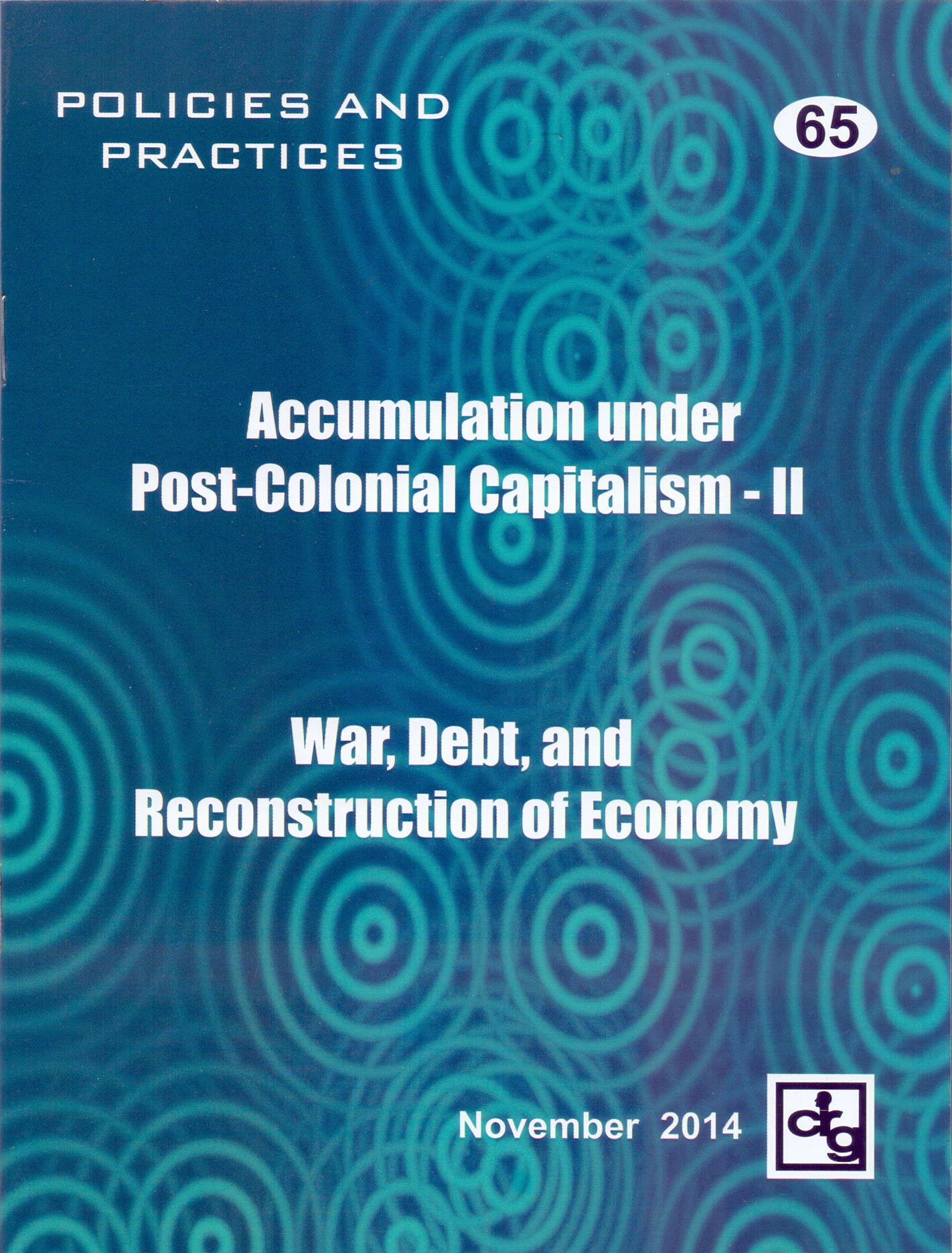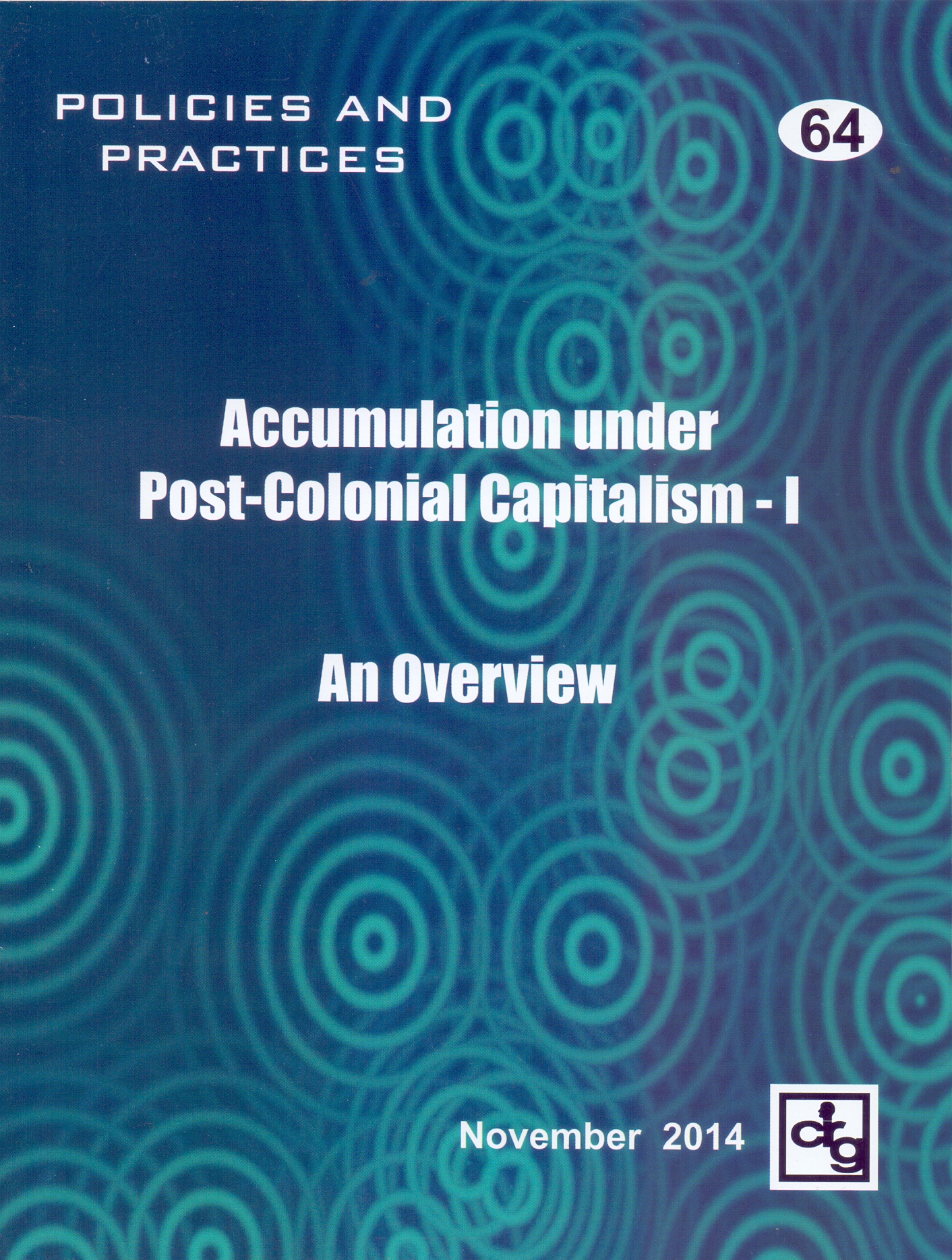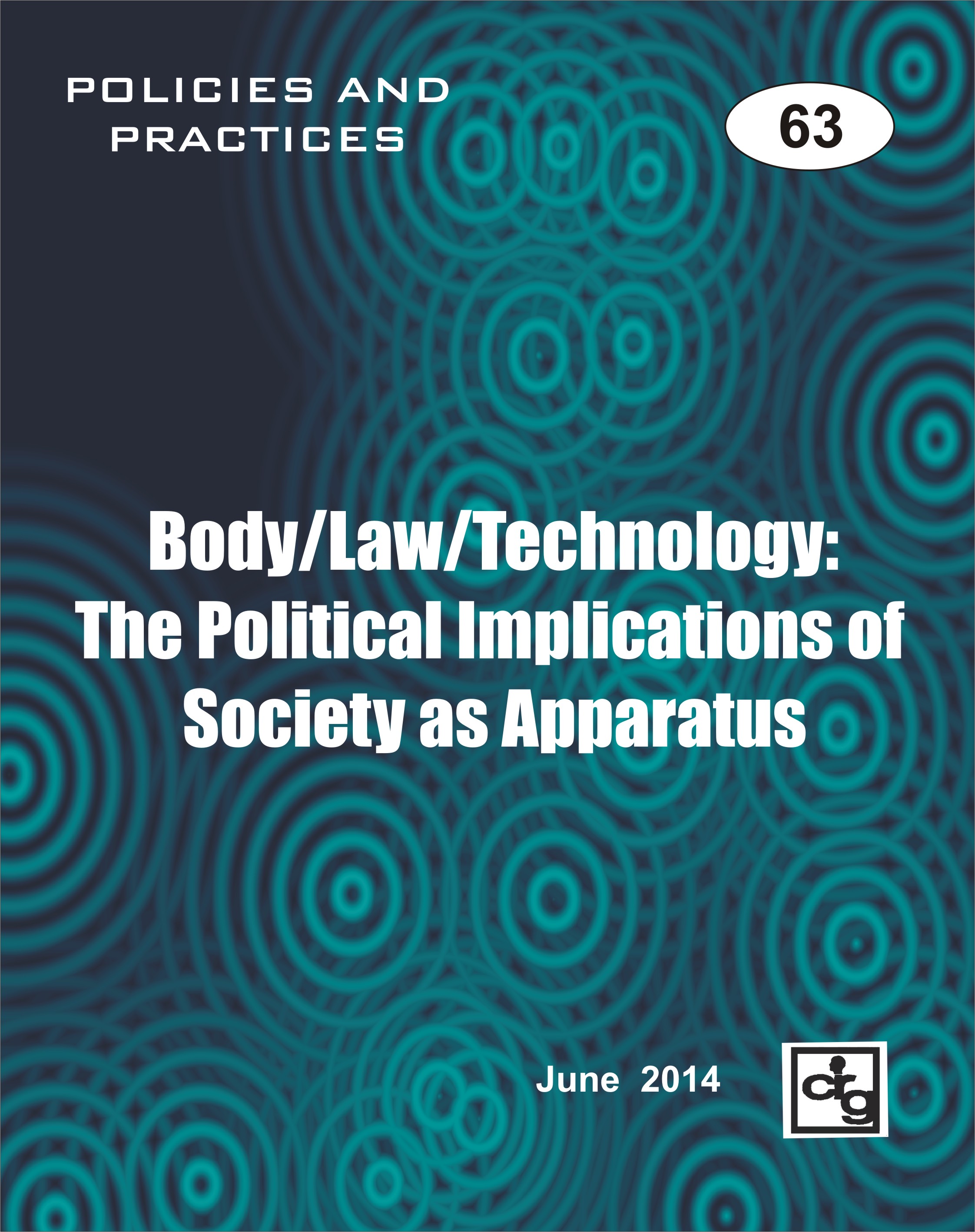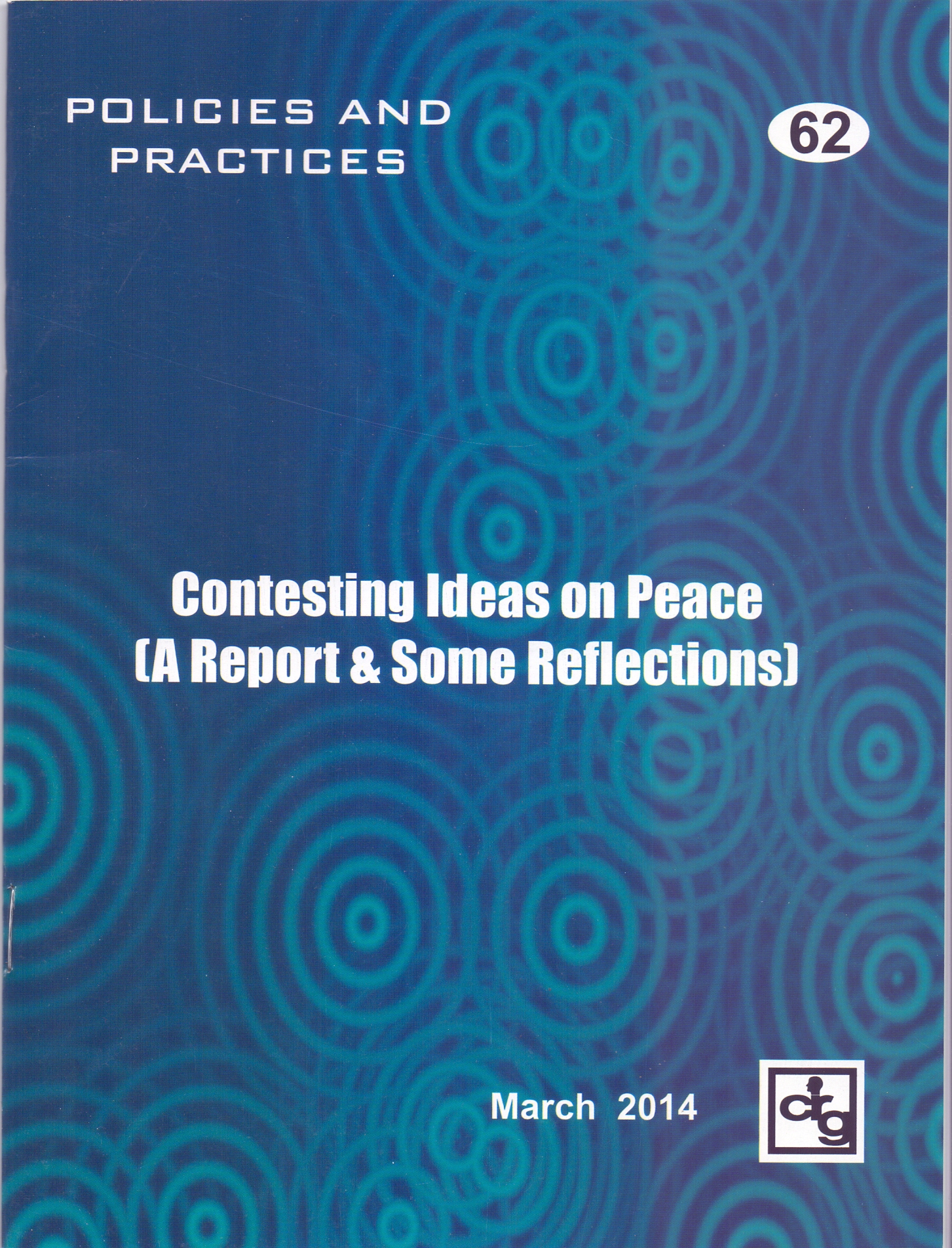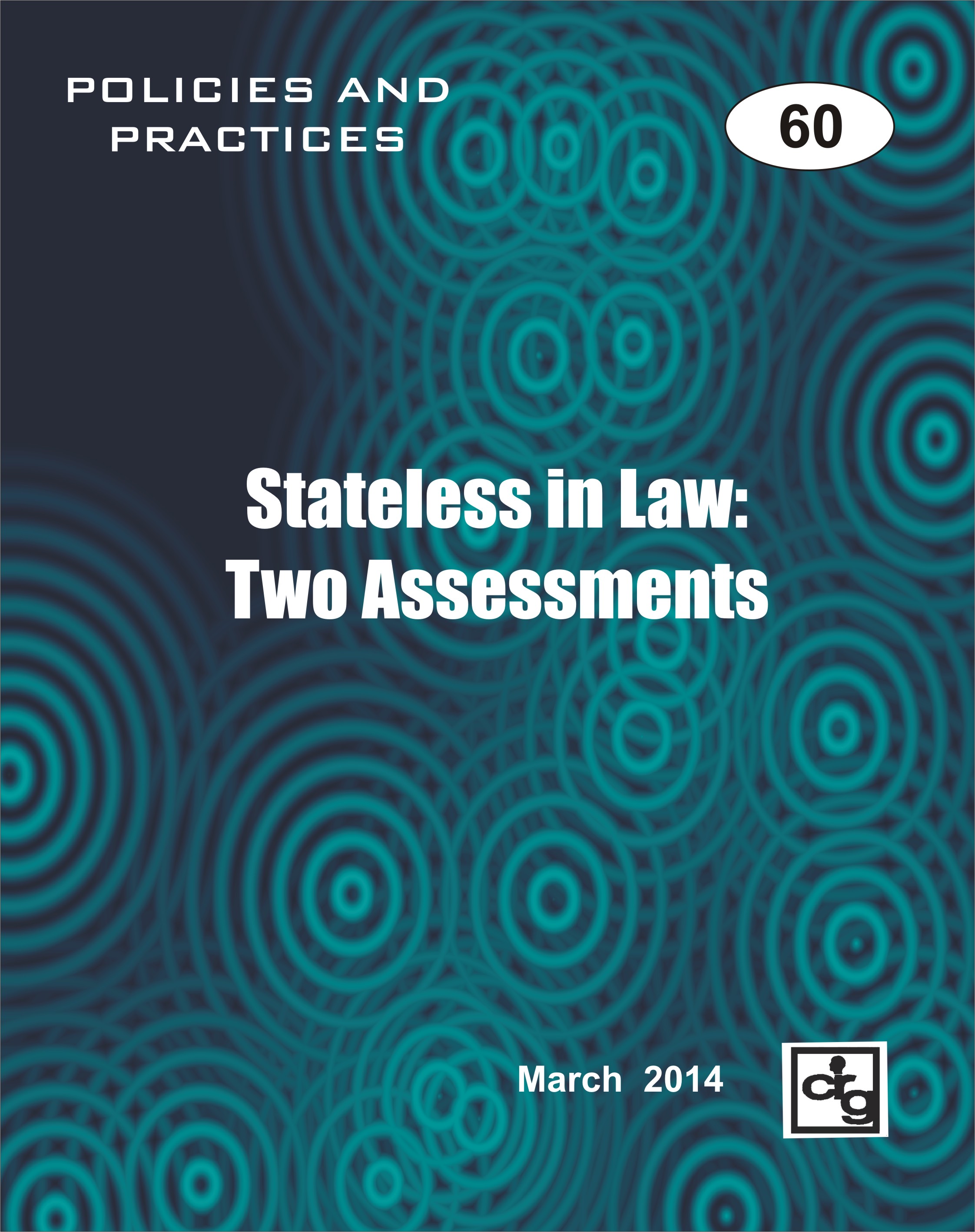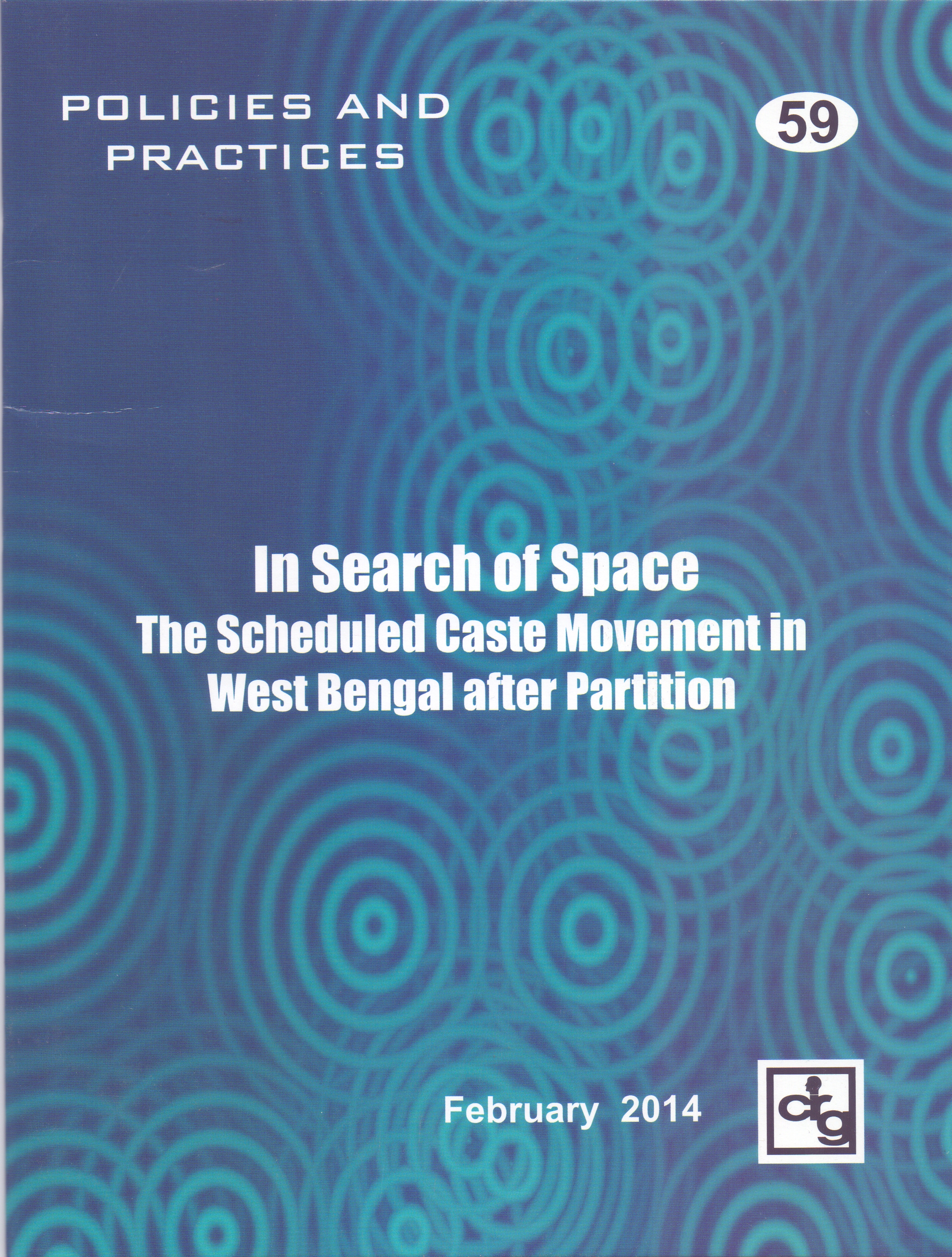| 2014 |
|
|||
|
Policies
and Practices 67 Mithilesh Kumar: Kumar’s paper looks at the problematic of infrastructure building and formation of a new political subject in the context of the Public-Private Partnership models (PPP) adopted by developmental agencies in Delhi. Shruti Dubey: Dubey’s paper explores the history of transformation of a small village called Khora into one of the most densely populated unauthorized colonies in Asia at the border of Delhi, Noida and Ghaziabad with migrant workers from Uttar Pradesh, Uttaranchal, Bihar and West Bengal as its inhabitants. Sushmita Pati: Pati’s paper studies various intermingled practices of rent extraction and communal identity formation in the ‘urban villages’ of South Delhi.
Essays by
Mithilesh Kumar, Shruti Dubey, Sushmita Pati |
|
|||
|
Policies
and Practices 66
Sonia Dayan-Herzbrun explores what it means to be Muslim in present
day France by exploring the historical aspects of French laïcité or
secularism. Starting from the debate on hijabs in France she
explores the historic context of laicite as a principle to grant
rights to minority and it’s misuse in present day France to take
away rights from a minority. She also point out how such
discrimination is leading to more and more people from the
minorities depending on their own resources and dropping out of
state-based institutions like school.
Essay by
Sonia Dayan-Herzbrun |
|
|||
|
Policies
and Practices 65 Ahilan Kadirgamar: Ahilan Kadirgamar studies in his paper the reconstruction of the political economy of Jaffna after the end of the two and a half decade long civil war in Sri Lanka. He particularly explores the source of income of people in Jaffna in the post-war period, especially the relation between agriculture and other sources like remittance. He further enquires about the causes and implications of rising rural indebtedness in the area and its relation with the ongoing processes of capital accumulation and dispossession. Suhit K. Sen: Suhit Sen’s paper chronicles the nationalization of fourteen scheduled commercial banks in India in 1969 headed by Indira Gandhi and contextualizes this incident within a larger study of India political structures and processes in the years between January 1966 and March 1977. Rather than focusing on the technical aspects of the operations of the banks after nationalization, Sen foregrounds the multiple political agendas and interests that mired the issue and speculates on its possible outcomes including gains by the rich peasants and the government itself, keeping once again the weaker sections of the society at bay.
Essays by
Ahilan Kadirgamar and Suhit K.Sen |
|
|||
|
Policies
and Practices 64 Ranabir Samaddar: Ranabir Samaddar’s paper looks at the debates and discussions on the question of accumulation from a postcolonial perspective, that is, the angle of a critical theory of postcolonial capitalism. He is also concerned with the philosophical implications of a postcolonial critique of the contemporary dynamics of accumulation and whether that critique can originate only from within the postcolonial regime of accumulation. Ilia Antenucci: Ilia Antenucci’s paper offers a set of hypotheses for understanding the connection between postcolonial capitalism and the global processes of securitization. Her paper uses the term ‘securitization’ in a flexible manner to indicate the simultaneous occurrence of different phenomena – the privatization of security, the expansion of the private security industry and the emergence of security as a hegemonic issue on a global scale. In particular, she examines the how these aspects of securitization are embedded in the processes of accumulation under postcolonial conditions.
Essays by
Ranabir Samaddar and Ilia Antenucci |
|
|||
|
Policies
and Practices 63 Itty Abraham: Itty Abraham’s paper starts with the notion of body made subject to the judicial gaze, mediated by forensic technologies. By referring to the practices of identity establishment and truth-telling since the colonial times and active even in the postcolonial age, Abraham invokes the concept of biopower to study the intersection of body, law and technology in non-Western settings. One of the contemporary sites of this intersection is the initiative of Universal Identification (UID) or Aadhar which he discusses at length in this paper. Drawing insights from the new media studies, especially the ideas like database and interface, he argues out that postcolonial biopower contingently positions individual rights and community standards within an apparatus that incorporates courts, legislatures, social movements, body parts and forensic technologies.
Essay by
Itty Abraham |
|
|||
|
Policies
and Practices 62 The article reflects upon the changing notions of peace in the modern world and role of peacemakers in different conflict situations. The author through select case studies examine how the character of war has changed from being ‘inter-state’ to ‘intra state’ in the post cold war scenario. Civil wars marked by vehement ethnic clashes and an inordinate desire of controlling global resources are now the order of the day. As a result the whole corpus of peace has changed in the modern world which demands new ideas and dialogues in peace studies. Against this backdrop, the article aims at analyzing governance initiatives amidst different conflicts in India and the European Union through comparative analyses of case studies from the two continents.
Essay by Biswajit Roy |
|
|||
|
Policies
and Practices 61 In his essay Oliver P. Richmond examines the theory and and practical aspects of statebuilding and emerges with a critique of statebuilding as resulting in fragile, insecure, ‘failed’ states. Because the paradigm of statebuilding, following a northern understanding of rationality and liberalism, has become so fixed, it precludes any discussion on different types of states that might be suited to different contexts. As a result about 1.5 billion people today continue to live in ‘fragile states’ (UNDP) that came about through the current discourse on statebuilding. Richmond critiques the practice of imposing this model of statebuilding as well as the theorisation surrounding statebuilding.
Essay by
Oliver P. Richmond |
|
|||
|
Policies
and Practices 60
Charlotte-Anne’s
paper is a theoretical analysis of the prevention and reduction of statelessness under
International Laws.
She argued that while
acceding to the two statelessness conventions
would no doubt be a decision welcomed by the international community
and organizations concerned with statelessness,
there is much for India to do to address the plight of those who are stateless besides
considering accession to either convention. She
cited various International law documents under which India is bound
to respect the civil, political and economic rights of an
individual. Her final remarks are to revise Indian citizenship law
and make the protection of international human rights available to
every person present in India.
Essays by
Charlotte-Anne Malischewski and Shuvro Prosun
Sarker |
|
|||
|
Policies
and Practices 59 In West Bengal it is widely believed that the discourse of class has displaced the discourse of caste. This notion of Bengali exceptionalism however was seriously challenged recently by the midday meal controversy in 2004, when it was widely reported that in a number of districts, parents of higher castes objected to their children eating cooked meals in schools prepared by volunteers from the Scheduled Castes. The situation underscored the importance of that unanswered question: if caste distinction still persists, then what happened to all those powerful voices that protested against it so forcefully before 1947? It is probably this prolonged and apparent silence on the part of the organized Scheduled Castes in the public life of West Bengal that has resulted in that powerful political myth that caste does not matter in Bengal. This study argues that an explanation for this silence lies partially in the long history of Partition. It also tells story of the breakdown of Scheduled Castes-Muslim alliance in east Bengal, the subsequent Scheduled Caste peasant migration, their dispersal, struggles and sufferings in post-Partition West Bengal between 1950 and 1964. The study shows how the caste question still worked in this refugee story.
Essays by
Sekhar Bandyopadhyay and Anasua Basu Ray
Chaudhury |
|
|||
